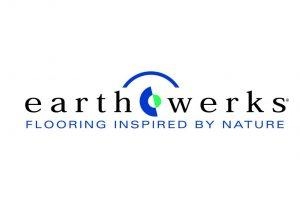Popular Types of Flooring
Flooring varies greatly in price and design. Here's what to know about each type.
Hardwood Flooring
The appeal of hardwood floors stands the test of time. With shades including oak, walnut, cherry, maple, and more, it can fit any design without sacrificing durability. Despite its allure, hardwood comes with a higher price tag. You also need to stick to a consistent refinishing schedule every few years, filling in the gaps with specialty wood cleaners. The more time you invest in maintenance, the longer your floors will last.
Engineered Wood Flooring
Engineered wood offers you the durability and look of hardwood without the extra maintenance. Typically, it consists of a layer of real hardwood fused with a plywood substrate. Despite the lower retail cost, it might sound more hollow to walk on, and the thin hardwood layer can only be refinished once. That said, its lower propensity to warp could still make it an intelligent investment.
Laminate Flooring
Laminate is another more affordable flooring option, consisting of a particleboard base, wood or tile finish, and protective plastic coating. It's easy to clean, scratch-resistant, and available in countless different styles and colors. However, it's more susceptible to water damage and chipping.
Vinyl Flooring
Vinyl flooring has superior moisture and fading resistance and requires minimal upkeep. Popular options include luxury vinyl plank (LVP) and luxury vinyl tile (LVT), with both having equal strength and longevity depending on the model you buy. Their price point sits comfortably between wood and laminate.
Tile Flooring
Tile flooring is another timeless-looking, robust option. Like vinyl, it requires minimal maintenance and is easy to clean. As such, it's an excellent choice for moisture-prone spaces like kitchens and bathrooms. However, it might not work well for living rooms and bedrooms since it's colder and less grippy to walk on. Pricing varies between styles, with porcelain carrying a higher price tag than ceramic.
Stone Flooring
Stone floors are among the most waterproof available. You can choose from a variety of bold design options, including travertine, marble, granite, and sandstone. However, like hardwood, it can be expensive and difficult to clean.
Linoleum Flooring
With attentive maintenance, linoleum floors can persist for decades. It is a cost-effective choice with numerous methods for adaptation. However, it can easily become damaged and has been known to fade when exposed to sunlight. The sun's rays also lead linoleum to lose color over time, and it may not be suitable for areas with excess moisture.
Carpet
Carpet is the most affordable flooring option. It can make a space feel more homey and is great for muffling sound. You don’t have to be concerned with scratches or dents, and the cushioning makes it a safer choice for babies and toddlers. However, the fibrous material easily holds onto odors, stains, and moisture, which isn't ideal for allergy sufferers in Garland's perennially-high pollen levels.
How to Choose a Garland Flooring Company
Choosing the appropriate installer significantly affects your new floor's quality. We recommend assessing different companies using the following criteria.
Reputation and Reviews
The first thing to note is whether a company is known for good service and high-quality work. Check review sites like Trustpilot, Google, Yelp, and the Better Business Bureau (BBB) to see what previous clients have to say. Even the most reliable flooring installers will have both positive and negative reviews. Look for how a provider handles complaints and interacts with others. If it works toward a satisfactory resolution and acts in good faith, that's a good sign. However, if it's combative or has a high negative-to-positive review ratio, it's advisable to avoid working with it.
Portfolio and References
Most floor installers keep portfolios of their past projects. We recommend requesting a copy so you can study the crew's craftsmanship. It's also customary to ask for references from former customers. Once you have their contact information, reach out to ask about their experiences.
Specialization and Services
Look for a business that specializes in the type of flooring you're interested in. For example, a crew might be experienced with carpet but not tile. An installer's service offerings can also make a difference. At the very least, you should choose a provider that offers to haul away your old flooring materials. However, companies can also offer hardwood refinishing or design consultations.
Cost
While cost shouldn't be the most important factor when choosing a flooring installer, it's still important to find one that respects your budget. We recommend getting quotes from at least three companies to compare prices. You can do this fully online or by requesting free in-home estimates.
Warranties and Guarantees
You should look for two different warranties in your company search. A manufacturer's warranty protects you in case of a product defect, while an installer's warranty covers workmanship. While a few manufacturers and contractors have lifetime warranties, most are still restricted to a specific time period (often ten years.) If you'd like additional coverage, you might be able to pay extra for an extended warranty.
Estimated Timeline
Time management is key to a successful flooring job. Before you agree to work with a company, request an estimated timeline and inquire about what delays could impact the project. If a company assures you it'll finish the job by a certain deadline, get that guarantee in writing and convey your expectations clearly as the work progresses.
Ready to Get a Quote on Your Flooring Project?
Please enter a valid 5-digit zip code!
Frequently Asked Questions About Flooring in Garland
How much will it cost to install a new floor in Garland?
See our guides to how much each flooring type typically costs:
What are some of the most popular types of flooring in Garland?
Do Garland flooring companies need to be licensed?
What is the best type of flooring for a kitchen?
Are there environmentally friendly flooring options in Garland?
To share feedback or ask a question about this article, send a note to our Reviews Team at reviewsteam@thisoldhousereviews.com.

















